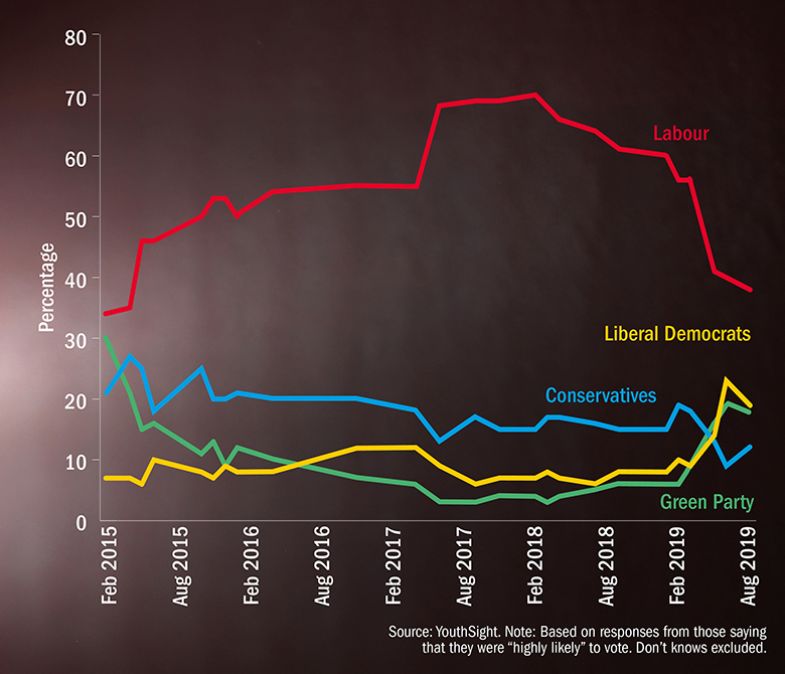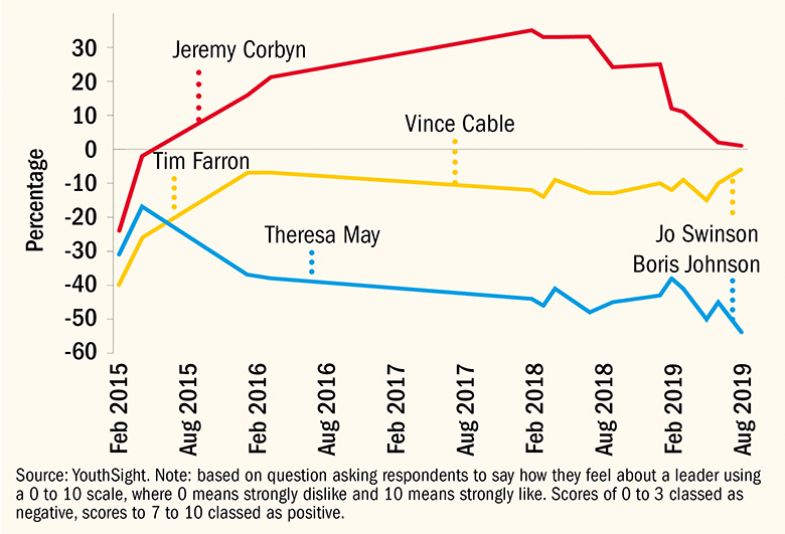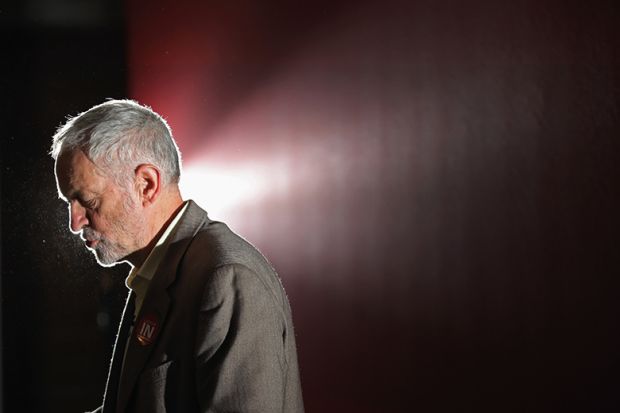The huge support that Labour had among UK students has almost halved in 18 months, with its position on Brexit potentially causing voters to flock towards fully fledged Remain parties like the Liberal Democrats, a new survey suggests.
According to an exclusive survey of almost 1,000 students for Times Higher Education, carried out by research agency YouthSight this month, Labour still has the support of 38 per cent of those who said that they were highly likely to vote.
But that represents a drop of more than 30 points from February 2018, when 70 per cent said that they would vote for the party.
Meanwhile, reflecting the picture across the wider UK population, support for the Liberal Democrats and Green Party has grown, with these parties now representing 19 per cent and 18 per cent of the student vote, respectively.
The Conservatives were on 12 per cent.
Support among students for the Liberal Democrats now seems uninhibited by its breaking of an election pledge over undergraduate fees in 2010, when they were part of the coalition government with the Tories that tripled tuition to £9,000.
How students would vote if there were a general election tomorrow

“If you’re an 18-year-old student, you were about 10 when the Lib Dems broke their promise on tuition fees; you weren’t even at secondary school,” said Nick Hillman, director of the Higher Education Policy Institute.
With Labour, Mr Hillman said that the appeal that leader Jeremy Corbyn had with younger voters might be “starting to be unpicked”, because he was no longer the “new kid on the block”.
“[Labour] are still polling at a level where any of the other parties would be delighted to be getting [that share of the vote] among students. So they are not exactly catastrophic numbers, but it certainly seems the sheen has come off,” he said.
How students feel about UK party leaders

Mr Hillman’s comments on party leadership appeared to tally with the YouthSight survey. Students gave a favourability rating that was only just positive to Mr Corbyn – down from a high point of 41 per cent positive 18 months ago. New Liberal Democrat leader Jo Swinson, although rated slightly below zero, had a higher score than any of her predecessors.
Both were well ahead of the new prime minister, Boris Johnson. He received a rating among students of minus 54 per cent, lower than Theresa May.
However, Mr Hillman said that the Tories’ performance would not necessarily lead to any rush to implement the Augar review of post-18 education and its call for the cap on fees to be lowered to £7,500.
“Do I think [the Conservatives] might want a stronger offer for students? Yes. But do I think it gives the likelihood of Augar being implemented a shot in the arm? Probably no,” he said, given that returning universities minister Jo Johnson had been so critical of the review’s findings.
If a general election is held this autumn then the student vote could be crucial, with a number of university towns and cities – such as Canterbury – unexpectedly captured by Labour in 2017 thanks in part to younger voters.
Despite pressure from party members, Mr Corbyn has refused to shift Labour to a position of Remain and has urged MPs to back a no-confidence vote in Mr Johnson, allowing for the installation of a Corbyn-led caretaker government tasked with delivering an extension to the UK’s deadline for leaving the European Union, and a second referendum on the issue.
However, Mr Corbyn has refused to state what Labour’s position in such a referendum would be.
Asked how they would vote if a second referendum were held tomorrow, 76 per cent of respondents to the YouthSight poll said that they would vote Remain. Six per cent said that they would back leaving with Theresa May’s deal, with 8 per cent supporting leaving with no deal and 10 per cent saying that they did not know.
Commenting on the overall YouthSight figures, Sir John Curtice, professor of politics at the University of Strathclyde, who has led the team of experts crunching UK election exit poll data since 1992, pointed to the student picture not necessarily being that different from the national population.
“The Liberal Democrat revival is mostly based on Remain voters; [they] have hardly picked up a single Leave voter during the course of this year,” he said.
“What isn’t clear is that the Liberal Democrats have gained ground among young people in particular. They have probably been disproportionately picking up the older Remain vote rather than the younger Remain vote.”
POSTSCRIPT:
Print headline: UK student support for Labour halves in 18 months
Register to continue
Why register?
- Registration is free and only takes a moment
- Once registered, you can read 3 articles a month
- Sign up for our newsletter
Subscribe
Or subscribe for unlimited access to:
- Unlimited access to news, views, insights & reviews
- Digital editions
- Digital access to THE’s university and college rankings analysis
Already registered or a current subscriber? Login







